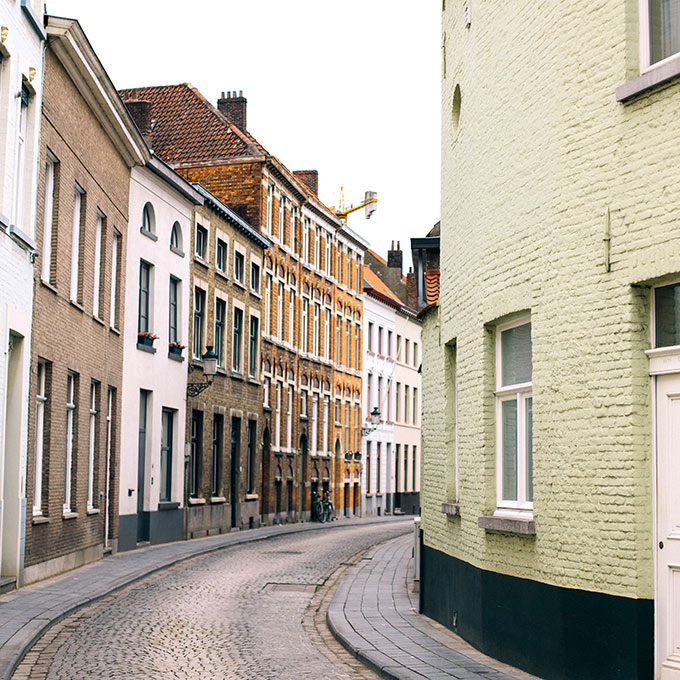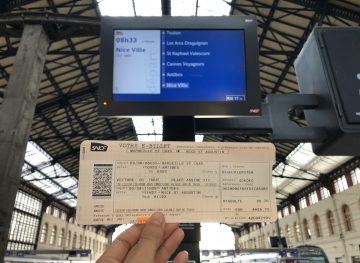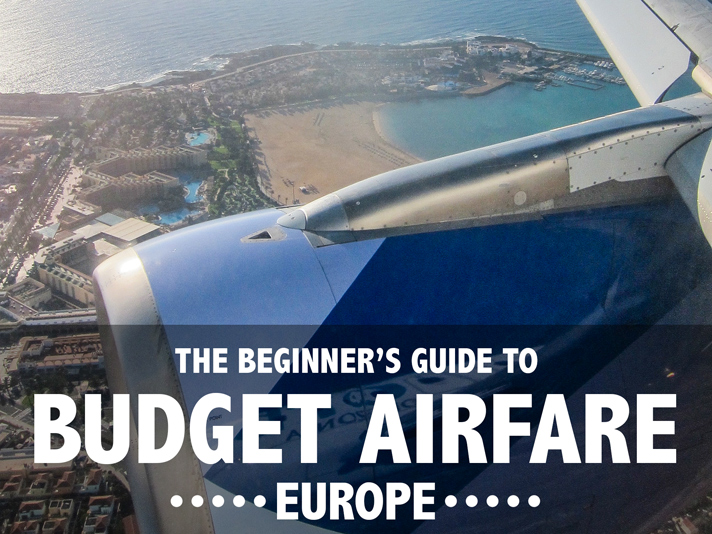
Updated: November 2019
Backpacking through Europe is on many people’s bucket lists. It’s one of the best-paved tourist routes, there are many methods of budget transportation, and you can easily visit multiple countries in a short period of time.
Below are ten tips for first-timers interested in backpacking Europe!
Plan Destinations But Be Flexible
Europe is massive with so many amazing destinations to visit. Depending on how much time you have, plan to hit the spots you want to see the most. Having a basic outline of where you want to go, how much time you plan to spend there, how you will get there and an idea of where you would like to stay is important.
However, one of the best benefits of backpacking is meeting other people and creating new travel plans together.
If you are traveling solo (which I highly recommend), you are guaranteed to meet other people traveling and you may want to join up with them for a while. If you have too many tickets/accommodations booked, it could prevent you from traveling with your new friends. I recommend making your confirmed bookings right before you travel to the next city.
Depending on the time of year, last-minute booking is pretty easy and common in Europe. Just be sure there aren’t any major events or festivals happening that may bring your plans to a halt.
Understand Prices and Budget Accordingly
Backpacking in Europe can be very affordable. While it’s not “Southeast Asia cheap,” you can still get around and get by on a pretty low budget. Lonely Planet and other backpacking websites are good tools for understanding pricing on accommodations and activities in each country.
Also, make sure you understand the currency conversions. Download a currency app if you aren’t the best at math. They work offline so you can still use it without WiFi or cellular service. It’s normal for it to take a few days to figure out exactly how much things should cost, but worry not, you’ll get the hang of it quickly!
Read More:
Cash or Card?
Most countries in Europe accept credit cards so get a good travel rewards credit card before you start booking your flights (you get more points back on travel!). I highly recommend the Chase Sapphire Reserve card.
Don’t bring cash from home, simply pull out cash with your debit card at an ATM. Avoid currency exchange at all costs. You get ripped off! Be sure to check what your bank exchange rate and fees are before going leaving, but it will still be a better deal than using a currency exchange. Most European ATMs don’t charge a fee on their end.
Research Festivals and Holidays
Especially during summer months, there are tons of amazing festivals in Europe. You can run with the bulls in Spain in July, go to Oktoberfest in Germany in September or join The Yacht Week in Croatia, Italy, and Greece. Be sure to research what you want to attend, book your tickets, and book accommodation early as it does fill up far in advance.
At the same time, you may want to see Munich but not during Oktoberfest. So, have an idea of what is going on in the cities you want to visit before you go so you can consciously attend or avoid them.
Learn Key Phrases
It’s true that in most places you go, someone will speak English. But it’s still nice to be able to say “please” and “thank you” at the bare minimum in the local language wherever you are. Go a step further and write down a few key phrases before you arrive. It’s not difficult and the local people will appreciate your efforts.
Transportation
Planes, trains, and automobiles! It is super easy to get around in Europe. There are loads of cheap airlines such as Ryan Air that constantly have amazing deals and super cheap tickets. You can also look into getting a Eurail Pass before leaving home. The pass is valid for a certain amount of time and will allow you to take certain trains if a seat is available.
Saving money with a Eurail pass is debatable, but local trains within a certain country are typically quite inexpensive and easy to book last minute.
Buses, of course, are also a great option. But, if you’re traveling long distances and you don’t feel like spending 2-days on a train, budget airlines like Ryanair are great options. You’ll arrive at your destination in a matter of hours. Just keep in mind that they charge for EVERYTHING so be smart about your baggage.
Not only is it the cheapest way to get around but you can also meet local people!
Know Your Visa Allowance
Get familiar with which countries are part of the European Union, but specifically the Schengen Area. The Schengen Area is made up of 26 European countries that have adapted a common visa policy. As an American, you are allowed 90 days in a 180-day period to stay in the Schengen Area.
While the UK is part of the European Union, it isn’t part of Schengen (neither is Ireland, Romania, Bulgaria, Croatia, or Cyprus). That means Americans get a 6-month visa on arrival instead of the 90 day maximum of Schengen countries.
Depending on the countries you plan to visit, and where you’re from, make sure you do your research on how long your visa allows you.
Accommodation
There are all types of accommodation available in Europe, whether it’s a 5-star hotel or a low budget hostel. Certainly, use Lonely Planet and websites like Hostel Bookers to check prices and availability, but it’s also good to ask other travelers where they have stayed as first-hand recommendations are always better.
If you don’t feel comfortable with the idea of sharing a bunk with someone at a hostel, look for a private room. This still allows you to be social while maintaining your privacy.
While I previously mentioned to not have too many plans set in stone, it’s usually a good idea to have your accommodation booked before you arrive.


Understand Cultural Norms
Some cultures practice certain courtesies. Some cultures are very physically affectionate, while some cultures have a reputation for a laid-back lifestyle where timeliness is a nice idea, but hardly ever practiced.
It’s important to understand some of the norms you’ll encounter before arriving in a destination.
For example, the Spanish and Italians like their siestas during the day, which means local businesses typically close for a few hours in the afternoon. Many may not re-open if they don’t feel like it. This can include restaurants as well and this is especially true in France. If you have things you need to accomplish, make sure you know the normal hours of operation for the country.
Otherwise, do as the locals do and have a nap!
Stay Safe
While Europe is mostly very safe, there are always people that are out to get the naïve tourist. Watch your pockets in big cities, keep your belongings close to you, and be wary of people trying to distract you.
A smile and confidence will go a long way while traveling solo, so stay assertive and use your street smarts at all times.
Go with the Flow and Enjoy!
When you’re backpacking, there is always a chance that things could go wrong. But, most of the time, it’s nothing that doesn’t have an easy solution. Be smart about your plans, but if something does go wrong, laugh it off, go with the flow and enjoy your time.















I’m so glad you found it so helpful! This is the post I’ve been meaning to write FOREVER, so when I finally did, I put my whole heart and soul into it. I want everyone to know Europe doesn’t have to be expensive. Thanks for reading!
I’m so glad you found it helpful, Kenteken!
Hello, your site is really helpful with great advice and travel tips. I am hoping to travel Europe (I live in the UK) in April 2023. This will be my first solo female trip. I am going to start off in Paris then move on to Italy, Croatia, Venice, Hungary, Germany, Amsterdam and finish off in Belgium.
Would you recommend that I have accommodation prebooked for all of those countries or is it best just to have accommodation booked for Paris and then book/find my accommodation as I go along?
Thank you
It totally depends on your comfort level. You can definitely pre-book but April is sort of the shoulder season for many of these countries so I imagine you could hold off and book closer to your travel dates 🙂